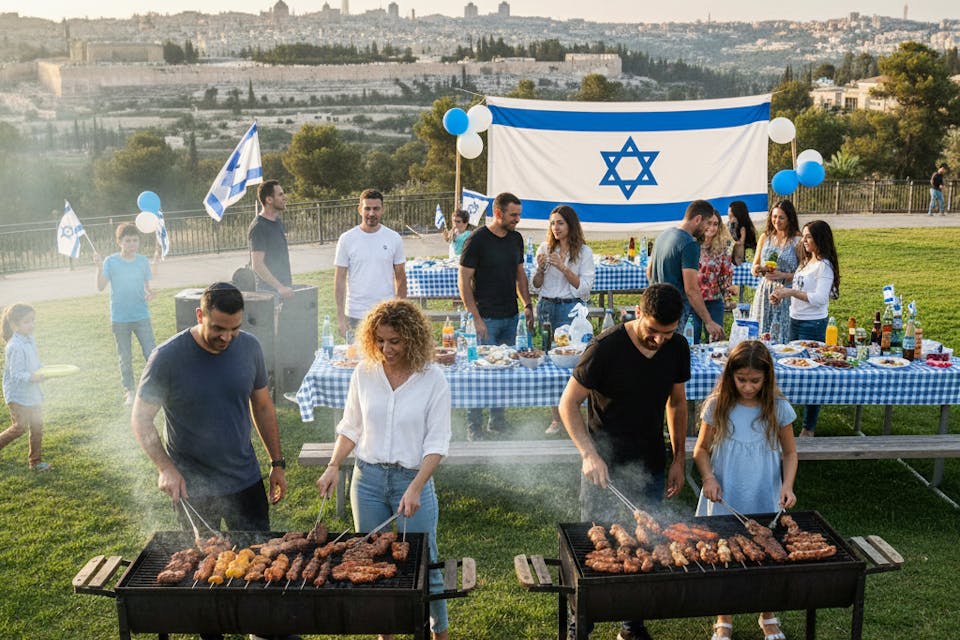
May 22, 2024
The Day of the Barbecue
Is the surprisingly furious debate over how religious Jews should celebrate Israeli Independence Day nearing an end?
Soon after October 7, 2023, as soldiers began mustering for the coming battles in Gaza, a remarkable phenomenon emerged almost spontaneously in military encampments around the country: pop-up barbecue stations serving soldiers gratis, run entirely by volunteers. The anthropologist Nir Avieli visited one such mangal (the Hebrew word, of Ottoman Turkish origin, for barbecue) and described what he witnessed.
At the Gilat intersection, right at the entrance to Route 242, one of the main arteries of the war, within a few days a huge cooking and logistics complex was established, which included awnings over synthetic grass carpeting in an area of about half a dunam [roughly 5,000 square feet], in which stalls served the soldiers food, mainly hamburgers grilled on the fire and hot dogs in buns. Next to the roast-meat stands, a stand was set up where homemade cakes were served, another stand with a sophisticated espresso machine that offered all the options you can get in a fashionable cafe in the center of the country, and various pop-up stands, such as a stand where a farmer squeezed juice from pomegranates he brought from his orchard. There was also a barbershop where volunteers gave haircuts to the soldiers, and a synagogue.
Next to the enclosure, huge mangalim many meters long were set up, on which many volunteers from all over the country grilled about 15,000 hamburgers every day, some of which were served to the soldiers on the spot, and some of which were sent to the soldiers at the front. The barbecues raised a cloud of heavy smoke and a strong aroma of grilled meat that everyone who passed by, day or night, saw and smelled.
Noa Asculai, sociology student at Ben-Gurion University recently called up the reserves, documented what it was like to be on the receiving end. She described a “processes of building a kind of alternative family, a company of male and female reserve soldiers that formed while dealing with brokenness and pain,” through sharing of food: